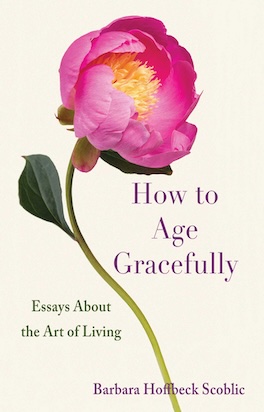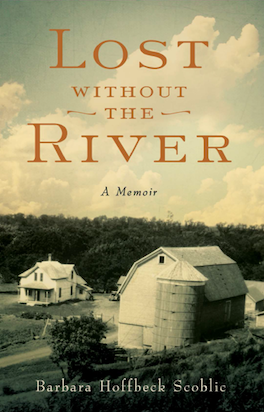Who I Am & How I Started:
For thirty-five years, my career was as a full Professor of Medicine, doing scientific research, teaching, editing a peer review journal, running Intensive Care Units and managing a university division as a division Chief while taking care of patients.
Like many authors, I began writing outside of work and school for many years before finding a publisher for my latest novel. My first novel was incomplete when I gave it up; my second novel was not good enough (in my judgment).
Recognizing My Own Flaws:
Initially, my characters were one-sided. My plots were undeveloped, which resulted in a lack of tension and conflict in my story line. My dialogs were stilted and un-lifelike. I needed help and began thinking about my problems in depth and studying the work of others who had succeeded where I was failing.
Educating Myself To Tackle My Flaws:
I read “How to” books, several excellent and helpful, including: The Art of Fiction by John Gardner (very helpful), On Writing by Stephen King (his personal journey, not so helpful), Writing the Blockbuster Novel by Albert Zuckerman (very, very helpful), How to Write a Book Proposal by Michael Larsen (helpful), The Spooky Art by Norman Mailer (an interesting, narcissistic voyage of one author, less helpful—title is the best part), 20 Master Plots by Ronald B. Tobias (most helpful, superb).
I reread my favorite classics, over and over, in order to really understand what elements would succeed: Pride & Prejudice by Jane Austen (25 times, not exaggerating), Farewell My Lovely by Raymond Chandler (15 times), Persuasion by Jane Austen (8 times), The Sun Also Rises by Ernest Hemingway (5 times), anything by Shakespeare, Orwell. I watched well-plotted, well-dialogued movies repeatedly: Ordinary People, The Lion In Winter with Peter O’Toole, Glenda Jackson’s performance in Elizabeth R, Peter Brook’s King Lear starring Paul Scofield, others.
These were just my personal choices; other authors will have their own, but the idea is to study masterpieces which are built well and show the way to mending one’s own personal writing flaws.
Writing My First Novel Worthy of Submission:
It took me fifteen years to write The Serpent Papers, a book close to my heart, to be published February 28, 2022, by The Permanent Press (see my website: jschnaderauthor.com/book-reviews). I did it while working my full-time career as a professor and ICU physician, following the age-old writer’s maxim, “Do not quit your job to be a full-time writer”—though once I retired, the process of finding a publisher was faster.
I have heard that authors approach writing a book differently from one another. Some plan every scene in advance of writing and never deviate (which I believe is far too rigid a system), often because they write formulaic mysteries or series of books which are somewhat cookie-cutter (although often good writing). Other authors just start writing and see where it goes. I’m usually the latter. I begin with an idea and write a few scenes which are key and must be in the book; these become benchmark chapters, which define a problem, a plot direction, and a plot finale. For The Serpent Papers, I started with my protagonist’s Catholic schooling and his interaction with the nuns (eventually moved to the middle of the book). I wrote next about an LSD trip. I then wrote the penultimate scene which would be the climax of the book so that I had defined an endpoint towards which my protagonist was moving. Then I wrote a few scenes which would introduce new characters. Later, I might amalgamate some of these writings or change their order. But the rest was a matter of stringing together the early benchmark scenes with other chapters that filled in the blanks while inventing other crucial scenes along the way (scenes of which I was oblivious when I started the book). Often the book writes itself this way; otherwise, the author must manufacture events and subplots to make the book interesting.
I outlined the book many times, which helped define the plot, character background, etc, but the ordering of the events in the outline never ended up as the order of what I wrote in the book. The book was a living thing that bent me to its will, much like a plant, requiring pruning and sometimes some topiary and direction, with frequent feeding and fertilizing. As a growing thing, it eventually dictated what I had to write in many unanticipated ways. One must be flexible.
Above all, there is no one way to write a novel. As an author, you must invent and own your own methods. But do not keep pages that don’t fit! Trim constantly, like a gardener. The writing of the book is more important than any of the other piece of the process. I wrote and rewrote every single page between three and fifteen times, averaging about five to seven times per page. Each edit was reprinted (often using the backs of already printed, recycled pages that would have been thrown out anyway), edited, and reprinted again until it was streamlined, had rhythm, and conveyed the meaning I wanted with the fewest words possible. It is hard to learn to throw out what doesn’t work, especially if the prose is appealing, but erasing and throwing out is absolutely imperative. You can keep passages you throw out, save them for later use elsewhere or for reference, but you must be ruthless in excising unnecessary passages from your work. This is hard because we all love our own words, but it is absolutely necessary. Every sentence must either be necessary in moving the book forward in its aims (plot, character, theme, ambience, etc), or it must be surgically removed. I tend to write too much and carve out passages later, which I believe is better than not writing enough, but we are all different.
Editors:
I finished the book, but I wanted what was nearest to perfection, so I hired an editor. I think an editor is a “must,” and this isn’t only my opinion. The less work an agent has to do, the better (many hate editing and will reject an author because of it; others think they are fabulous editors, and they aren’t). Out of all my decisions, the decision of which editor was the hardest decision that I had to make. Most editors are good at grammar, sentences, etc., but to get a book in the correct order is a big deal; most editors—from what I’ve seen—don’t have a good idea of what they are talking about. Many have preconceived notions about all kinds of things, especially from what they’ve learned from their professors while doing an MFA, and many of these professors are all theory about books without having written them (hats off to those who have). Successful authors are not editing books—they are writing, which says something.
I shot for the very best editor I could find, and I got lucky—Richard Marek had edited Ernest Hemingway, James Baldwin and all of Robert Ludlum’s books. We worked together for two years, and it was eye-opening. He was a genius for plot. When he died, he turned me over to an editor-colleague, who was also a fantastic editor.
A great editor is a must. But they will cost some thousands, which is why you must polish the book to its max before getting either an editor or agent.
Agents, Publishers:
You must have an agent to be “traditionally published” and certainly if you want to be published with one of the big 4 or 5 houses, which produce the lion’s share of bestsellers. Most agents are very helpful, especially those in business for a long time with a track record. Their job is to get you a publisher, and many will state outright that there is no guarantee that you get a publisher, even if you have an agent. I know an author who parted company with her agent after she failed to get the author a publisher. Ergo: getting an agent does not guarantee publication!
You must be extremely lucky to get a publisher without an agent, but it can be done. Some small-to-medium sized publishers will accept manuscripts without agents—I found one of them. I searched the lists on Google for “The top 10 [or 20, or 30, etc.] small publishers,” and there are lists of these. I applied to 60 agents and had about 10 full and partial manuscript requests from them, but none would take my book. I had maybe another 200 agents to go, so I thought I would ask a few publishers too as a sort of experiment. I approached about 3 publishers on my own without an agent. The Permanent Press gets about 6,000-7,000 requests per year and reads partial manuscripts from about 600. They take 10-20 per year to publish (only 3-4 last year). They took mine; I was lucky. To this day, I do not have an agent. There are pluses and minuses to this, but I do not have to share my royalties with an agent, which is not too bad.
Don’t Give Up!
The main thing is not to give up. Keep going. It is a marathon; stamina, drive, motivation, and belief (which borders on insanity) have to keep you going. It is a war of attrition. Many agents are looking for the wrong books too—many agents don’t make it from year to year and leave the industry for other kinds of jobs. They should be looking for your book, but they are looking for something that will fail, and so they fail, and these are not the agents you would want. So, keep going, because next year there will be another new batch of fresh-faced agents to replace those who left the industry, and one may be looking for your book!






